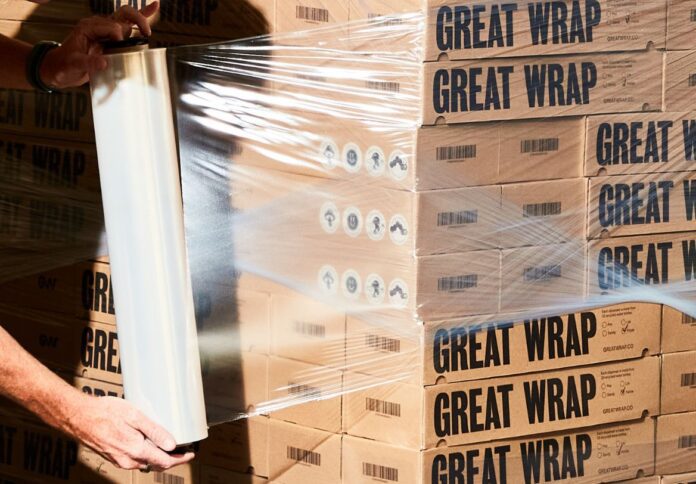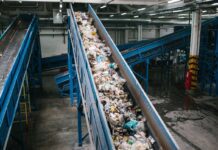
Material science company Great Wrap has unveiled a compostable stretch wrap made from food waste in an effort to combat the world’s reliance on petroleum-based pallet wrap and plastic pollution.
The world’s first Compostable Pallet Wrap is produced in the company’s 10,000 sqm facility in Tullamarine, where 5,000 tonnes of the product are expected to be manufactured within 2023 and 20,000 tonnes by 2025.
The company said the product is expected to decrease Australia’s carbon footprint by over 100,000 tonnes per year by lowering the country’s dependence on fossil fuels.
In Australia, over 100,000 tonnes of stretch wrap end up in landfills each year. This includes cling wrap, catering wrap, silage wrap and pallet wrap— a critical part of the global supply chain.
According to the company, millions of pallets are wrapped to transport goods each day, but very few facilities have the capability to recycle petroleum-based pallet wrap. This results in more than 90 per cent of the materials going to landfill.
Great Wrap can be composted or upcycled to create new materials and returned to the soil to add microbial value to agricultural land.
“We’ve completed commercial trials with major Australian retailers, food and beverage manufacturers and household name brands, and their feedback is consistent — Great Wrap performs as well as petroleum-based pallet wrap,” said Jordy Kay, co-founder of the company.
Great Wrap launched its direct-to-consumer line in the United States in 2022 as international demand grows for climate-positive innovations.
“We’ve had a huge demand building over the past three years from businesses far and wide. Most businesses, whether you know it or not, are using petroleum-based pallet wrap to send and receive their goods. This product is unavoidable, it is essential, and it’s a global problem that we are solving,” said Julia Kay, co-founder of Great Wrap.
The company said it is planning to open a biorefinery in 2025 to convert local potato waste into 20,000 tonnes of PHA, a marine degradable material made from microorganisms metabolising potato waste.




















